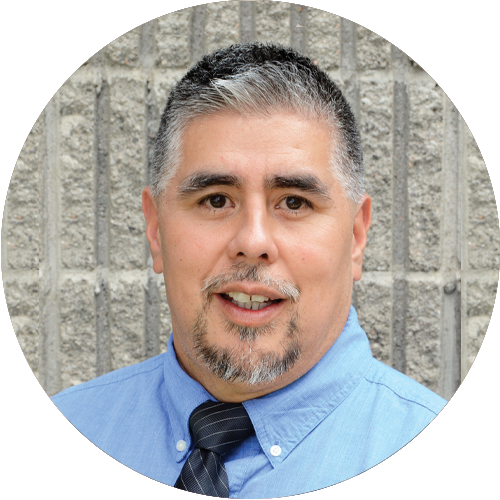
Cleaning departments across the country have faced multiple hurdles in recent years. One is the growing scrutiny over environmental initiatives. Another is the debate over the implementation of technology. Then there’s the pandemic, which added even more pressure to managers as all eyes turned to combating viruses in the midst of supply chain breakdowns and staffing shortages.
Despite the challenges, facility cleaning teams have been focused, vigilant and determined to persevere. In this roundtable discussion, Facility Cleaning Decisions sat down with the Advisory Board to address some of the biggest challenges cleaning managers are facing. Here are some of the highlights.

Karie King, CESE, CMIP
Manager of Environmental Services
Aurora BayCare Medical Center
Green Bay, Wisconsin

Michael Jones
Director of Custodial Services
Columbia Public Schools
Columbia, Missouri

Dave Crowell, MS CPMM
Director of Facilities
Maine Veterans' Homes
Augusta, Maine

Ada Baldwin, MREH
Director for University Housekeeping
North Carolina State University
Raleigh, North Carolina

Ricky Martinez
Assistant Director of Facility Services
Salt Lake City School District
Seattle, Washington

Babette Beene
Environmental Services Manager
University of Texas MD Anderson Cancer Center
Houston, Texas
Labor Challenges
FCD: Labor issues are rampant as the pool of potential candidates remains small. Where have you experienced struggles and/or successes in competing for top applicants?
King: We do not have issues competing for top talent because we are leading the area in offering good benefits, pay, etc. Our issue is more so the region in which we live and a smaller population. Not all of the candidates are interested in working in a robust workforce and tend to look for roles with more flexibility in attendance and no weekend shifts or holiday rotations.
Jones: The City of Columbia, Missouri, has the second lowest unemployment rate in United States. Six months ago, our department size was down by roughly 35 percent, but active hiring currently has us only 12 percent from our staffing goal. We do not have an incentive program, but we are seeing a lot of existing staff recommending friends and family. Meanwhile, the Board of Education approved a $1.50 per hour increase to the base plus a step for existing staff, effective July 1. I hope this increase will make us more competitive in our marketplace.
Crowell: While the majority of our staffing challenges have been in clinical positions, we continue to see a limited number of applicants for our service-level positions. We have been able to continue to stay competitive in our market for employees, however with the pool being very small, it is still a challenge to recruit. We are working at each of our locations to be as flexible as possible around scheduling and we’re looking into referral bonuses.
Martinez: Even before the pandemic, we struggled with staffing. Although our entry-level custodians (Sweepers) were technically paid above minimum wage at $7.50/hour, local restaurants and retail establishments were beating us out by offering as much as $15/hour. We tried highlighting the benefits of working for the school district — no weekend or evening shifts, set schedules, flexibility with school activities and benefits (health, 401K, pension, personal time off, etc.) — but we didn’t see any traction. The pandemic further highlighted our staffing struggles because of all the overtime we had to pay to get our schools properly cleaned and disinfected. Our School Board, superintendent, and business administrator realized this and decided to raise our entry-level pay for adult sweepers (Sweeper II) from $7.50 to $15/hour to start, and our student workers (Sweeper I) from $7.50 to $12/hour. Staff also get a 50 cent raise every fiscal year until Sweeper II reaches $18/hour and Sweeper I hits $14/hour. We would still be struggling if our district didn’t increase wages, but since this change, we are 95-percent staffed and are in amazing shape. The wage increase was also necessary to support our strong career ladder in the custodial department. Ninety-nine percent of our promotions are internal, which requires a strong or deep entry-level pool to build from. Without it, our internal career system that we pride our department on would be compromised.
Beene: We have had struggles with potential candidates due to our line of work. It's a strenuous job, but we offer competitive pay, great benefits and flexible schedules. The paperwork process (background check) is the hard part for the applicant because of the questions that are asked and the time it takes to complete. Zoom interviews also seem to be a challenge. I've had people log in while wearing pajamas and lying in bed. Some can't even answer basic questions during the interview process.
FCD: How have staffing shortages impacted the department and the cleaning demands in place?
Crowell: We have been able to maintain the daily cleaning needs within the facilities, however, project needs have been the biggest challenge. Departmental resources have also made turning over rooms quickly a challenge. We have really worked to see that support amongst all operations teams.
Baldwin: The staffing shortages have impacted the morale and the increased workloads of the staff. In addition to the staffing shortage, team members are already facing challenges with absenteeism, retirement is at an all-time high, increased student population and the structural growth of new facilities. The combination of these issues and meeting the requirements of the campus community is very demanding.
Jones: We have a very dedicated custodial staff who pick up extra overtime hours and will work weekends if necessary. Our district also approved all hourly staff in other departments to work for Custodial Services when needed. Most of these individuals will add 2-4 hours after their normal shift to help in buildings where we are short-staffed. They are paid at their current hourly rate and overtime applies if they work over 40 hours per week. Between our departmental employees working extra, and the addition of other district staff, we have been able to stay afloat, but issues arise with staff calling off, requesting vacation or using paid personal days. Teachers and staff understand our shortages — many help out by cleaning, stacking chairs, clearing off desks and tables, clearing out sinks and picking up large debris off floors. The staff at one high school agreed to pull classroom trash into hallways for custodians to collect and replace liners.
Beene: It impacted our staff in a couple of ways. First, there was a lot of overtime because we had to assign the existing staff more work. A tired and overworked team created the potential for workplace injuries. Then we lost team members as the current staff got promoted to other departments.
King: This has a big impact. Our current team is outstanding. They often help pick up open shifts and support the department to meet the needs of our patients.
Martinez: The impact was financial, because we weren’t staffed properly during the pandemic and still had to clean and disinfect our schools completely. We had to pay custodians overtime to make sure everything was complete. We also paid other departments (child nutrition, information technology, maintenance department) overtime to help with the cleaning. This was one of the deciding factors on raising the entry-level wages — paying overtime cost so much, it was cheaper to raise the wages.
FCD: Getting staff in the door is one thing, keeping them is another. What retention strategies do you have in place to keep workers engaged and happy in their work?
Jones: Providing unlimited overtime has helped numerous team members manage current inflation — that’s gone a long way. My supervisors and myself also offer support. We’ll visit buildings periodically to help the team clean and thank them for their service.
Beene: We offer growth opportunities as well as educational training at the hospital. We also offer assistance if the employee wants to go back to school.
Crowell: Our retention strategies remain the same — good communication, employee engagement, and sharing with all the realities the organizations face and focus on the patients/residents we serve.
King: We focus on engagement, keeping the doors open, listening to suggestions, and provide tokens of appreciation, like food, cakes and meal coupons. These are just a few of the methods we use to recognize the hard work of the team and show that we appreciate them. Again, pay and benefits also play a big part. We have developed a comprehensive training program to ensure each new member is trained the same and build their confidence in their role.
Baldwin: Career progression is a plan we hope to implement soon. Our goal is to help retain staff while providing a pathway for growth through the development of technical skills and training on supervision/management. Our Facility Division also offers an apprenticeship program in carpentry, plumbing, electrical and HVAC. With this combination, we are striving to assist staff in reaching their full potential.
Martinez: We were previously experiencing a higher turnover rate than normal with our student sweepers (which is common) and our adult sweepers (not so common). Our leadership team got together to discuss why it was happening and decided to implement an exit interview process. In conjunction with the union and human resources, we came up with an exit interview survey for our sweepers to fill out when they quit. The survey was designed to be anonymous, so staff would feel comfortable and more willing to fill it out. We discovered that many of the adults were leaving for better pay, easier work, quicker advancement, or because of lack of training and appreciation. Students were leaving because of the type of work, because of the lack of training and appreciation, or to focus on school. When we analyzed the results, we decided to focus on the things we can control and change — training; develop formal and informal appreciation days (awards); and work with school leadership to implement a district-wide process where, at the end of the school day, the students will pick up the big trash and debris (paper, pencils, crayons, food wrappers, etc.), as well as chairs and help with the big messes in the classrooms. We hope to implement this with the next school year. The goal is that addressing these three issues will help with retention.
FCD: Have your personal protective equipment (PPE) policies changed since the pandemic emergency was lifted and how does your frontline staff feel about using PPE moving forward?
King: Our policies and procedures have changed regarding personal protective equipment (PPE), and our team is very excited to remove the masks.
Jones: Our district made wearing masks optional. I'm not sure what percentage of the staff still wears masks, but I see very few being worn by custodians and district staff.
Crowell: We adjust our PPE based on community transmission rates and several locations have been able to lose the masks. Staff are understanding of the need if they have to go back to masks.
Baldwin: PPE policies did not drastically change for our frontline team. The wearing of masks was added during the pandemic and has become part of the norm. Staff continue to wear masks to protect themselves and others throughout the campus community. Although the masks are optional, some staff appreciate the additional layer of safety and protection as they work.
Martinez: Our policies changed for the better. Before the pandemic, it was hit and miss whether staff would use PPE. For example, custodians always wore gloves when they cleaned, but not masks or eye protection. The pandemic made us more alert on holding employees accountable for wearing the proper PPE — specifically the right kind of masks. Some vendors were lobbying us to use their PPE because it was the best PPE, but much of it was not the right kind or the right standard. When we found proven safety standard PPE, we made sure our employees were wearing it correctly and they fit the way they should. Our employees have developed a habit of wearing PPE routinely thanks to the pandemic.
Beene: Our PPE policies haven't changed. I do believe the majority of our staff would prefer to continue wearing PPE. This provides an additional safety measure for them.
Cleaning Techniques to Tackling Budget Restraints

 The Down and Dirty on Cleaning in Virus Season
The Down and Dirty on Cleaning in Virus Season How Surfactant Use is Expanding in Commercial Cleaning
How Surfactant Use is Expanding in Commercial Cleaning